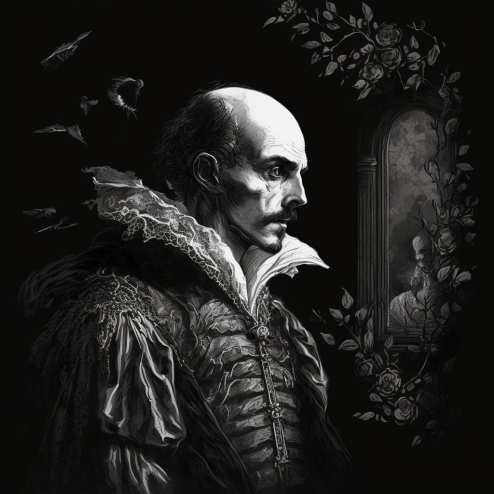 Is Shakespeare mandatory for a well-rounded secondary education? After more than 400 years, it’s reasonable to ask whether the canon is due for an overhaul, or to be chucked out of the window entirely.
Is Shakespeare mandatory for a well-rounded secondary education? After more than 400 years, it’s reasonable to ask whether the canon is due for an overhaul, or to be chucked out of the window entirely.
This isn’t a new thought, but it was put in a spotlight again lately when I was dusting off my RSS feeds. A post over on Daily Writing Tips that toys with the question of whether there should be a “traditional literary canon,” including Shakespeare.
I have a lot of opinions around this, some in direct conflict with one another. Short version: the canon should be overhauled, and kids shouldn’t read Shakespeare. Which doesn’t mean Shakespeare shouldn’t be taught.
To teach, or not to teach…
Why teach Shakespeare? For that matter, why teach literature at all? Part of the problem with setting educational standards is that we don’t all agree on the “why” in the first place.
Some folks argue for Shakespeare as a cultural touchstone. Kids should learn about his works because they’re hugely influential. And, this is usually unspoken, they want Shakespeare to remain influential for various reasons. I think too many people, candidly, are just freaked out about the idea that what they hold culturally important can be discarded.
If we don’t teach Shakespeare then what was the point of them learning Shakespeare? If they had Romeo & Juliet inflicted on them at a tender age, by gosh, then junior has to suffer through it too. (Others may have fonder memories of Romeo & Juliet, but to be honest it’s not a great story and it was made worse by a terrible teacher who only wanted to talk about the irony and none of the other literary devices in the play.)
More charitably, many folks feel like we should be teaching a unified set of stories so that we have more of a shared culture. Stories are, after all, how we understand the world.
The reason to teach any literature or media is to introduce kids to literary devices and to help them understand how stories work. They need to understand how to examine media, to judge what it’s trying to do, how writers play with language, to understand tropes and archetypes, to dig deeper than the surface level to see underlying messages (intentional and otherwise) and so forth.
They should be learning these tools against all forms of media, not just written word.
As much as I love reading, I’m a pragmatist about how people actually consume media. While we still have a vibrant literary culture and many avid readers, most of our collective media consumption isn’t from written prose and certainly not from centuries old folios of works meant for live performance. Most of our media consumption is movies and television, music, social media, and so forth.
Accordingly, our literary education, our media education, should be arming kids to critically examine the media they most consume. Yes, even (bleh) TikTok videos. (I am both sad that Neil Postman is not around to write about current media, and glad that he didn’t have to suffer through it. The man who wrote Amusing Ourselves to Death with great despair over television news as entertainment would’ve really hated social media.)
The play’s the thing
Given the cultural importance, I would still argue that Shakespeare should be taught as part of a balanced canon. But kids shouldn’t be forced to read Shakespeare, any more than kids 400 years from now should have to read scripts from Friends.
The plays were never intended to be read. They were intended to be performed. A well-staged production of A Midsummer Night’s Dream is a delight. When performed well the language sings, when read by a disinterested teenager it’s a slog.
Spend, say, three or four days on Shakespeare including a viewing of one of the plays. Cover his influence, including all the words coined by Shakespeare and how his stories were retellings and retold.
And then? Move on. Spend more time on more current creators. Shake the dust off the canon and turn people loose with the media tools to examine everything.

My freshman English teacher had us act out “Romeo and Juliet” (complete with play swords and construction paper blood splotches). We loved it so much that we talked our sophomore English teacher into letting us act “Julius Caesar” and “The Crucible”. I got a lot more from doing that than I did from reading “Macbeth” as a senior.
I like where you got to in the end. I watched, rather than read Melville and do not believe anything was lost. Knowing the stories is critical so you know when they’re repeated.
So much this. I read Romeo and Juliet and Midsummer. I still have yet to see a Shakespeare play. Really need to get to correcting that